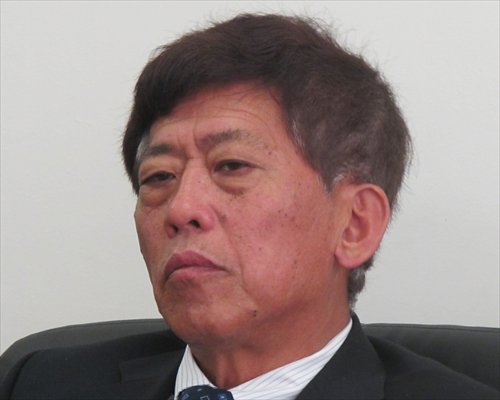Beijing-Seoul cooperation vital for region
Editor's Note:
Northeast Asia is considered one of the most complex and fragile regions in the global security landscape. The division in the Korean Peninsula and US alliance system in Asia contribute to the security dilemmas in the region. As stakeholders in Northeast Asia, how should China and South Korea cooperate? What are its implications for regional security? In a recent roundtable forum held by the Global Times and the Chosun Ilbo in Seoul, experts from the two countries shared their thoughts.
Jin Qiangyi, director of the Asia Studies Center at Yanbian University

Jin Qiangyi
The core issue of Northeast Asia dynamics is the Korean Peninsula.
China supports the peaceful reunification of the Korean Peninsula, which will bring a favorable environment for China's own development.
The relationship between China and South Korea plays a vital role in the region. If this relationship becomes tense, a Cold War situation may emerge in the geopolitical pattern of Northeast Asia, given the disputes between China and Japan, pressure imposed by the US, and the South Korean factor.
The bilateral relations should serve as a pillar for stability and development in Northeast Asia.
Chinese President Xi Jinping's visit to South Korea in July holds great significance. During the trip, Xi voiced China's support for a peaceful reunification of the Korean Peninsula.
It is vital for South Korea to win China's support in this aspect. A Cold War will do no good to South Korea, either.
China holds no objection to Seoul developing ties with Washington as this alliance has certain positive elements. Nonetheless, it is China-South Korea relations that are vital to stabilize the situation in Northeast Asia.
Park Se-il, professor emeritus at Seoul National University

Park Se-il
From the South Korean perspective, although China and the US are both big powers, they are different in terms of distance. China is South Korea's neighbor and there are bound to be frictions. Historically, we haven't seen any alliance formed between neighboring countries. A cooperative relationship between South Korea and China can only be established when it is dealt with in a Northeast Asian framework.
The US presence in Asia provides both positive and negative elements for the region.
South Korea will still need US military deployment in the region even when the Korean Peninsula achieves unification, as the US can serve to balance all stakeholders. If the US withdraws, South Korea will feel anxious.
Pang Zhongying, professor of international relations at Renmin University of China

Pang Zhongying
Some European scholars hold that Europe needs "a concert of powers," since we are now in a post-hegemonic era. I think Northeast Asia should be the same.
If we believe US hegemony is also declining in Northeast Asia, a concert of powers should be formed in the region to manage regional order and regional governance.
The Northeast Asian issue is a mathematical problem. Among all the six parties, there could be five-party talks which exclude North Korea or four-party talks that exclude either the two Koreas or Russia and Japan.
The situation can become tough if unilateral or bilateral actions were taken rashly.
In 2007 when then North Korean leader Kim Jong-il and South Korean president Roh Moo-hyun discussed the possibilities of three-party talks over the Korean Peninsula that were intended to include only the two Koreas and the US, China felt anxious.
It can be imagined that if Russia and Japan were excluded from a Northeast Asian mechanism, they would be concerned as well.
China has proposed to resume the Six-Party Talks that aim to find a peaceful resolution to the security concerns in the Korean Peninsula. The talks retain a certain flexibility and offer more open and tolerant solutions to deal with Northeast Asian security.
Shen Dingchang, director of the Center for Korean Studies at Peking University

Shen Dingchang
The US can balance different powers in Northeast Asia, but on the other hand, when the relations between the two Koreas become tense, not only should the two take responsibilities, the US should also be held responsible.
Washington has played a shameful role in not only the Korean Peninsula issue but also other Asian affairs.
No matter the presence of US military in South Korea or the Seoul-Washington alliance, they exist to deal with any confrontation between the two Koreas. However, if unification could be achieved, are they still necessary?